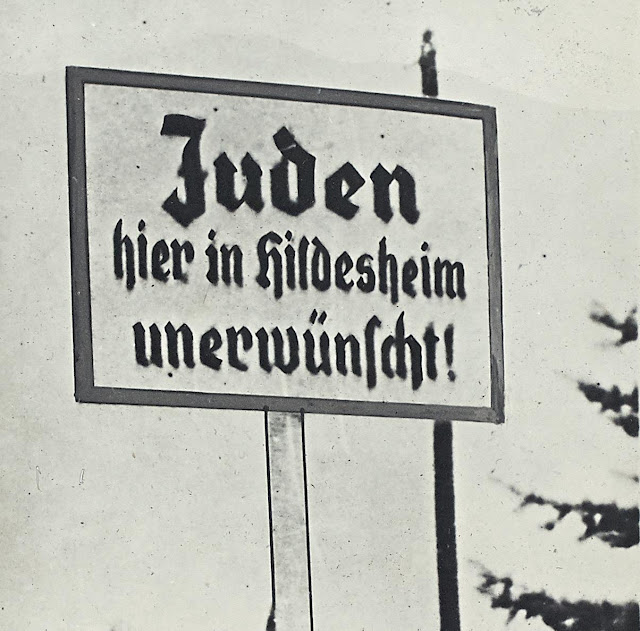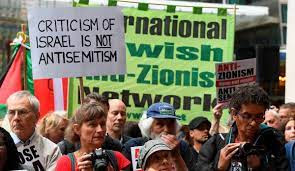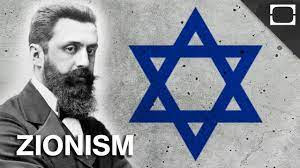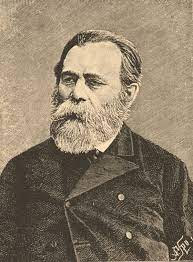Zionism & Anti-Semitism – the Conjoined Twins – The second of 5 talks on the History of Zionism 2nd April 6 pm
The history of how and why the Zionist movement and the anti-Semites became partners and the best of friends
Register here

This is the 2nd of 5 talks I am giving on Zionism as part of the Labour Left Alliance Education Programme. They take place every Friday at 6 pm until 23rd April.
One of the ironies of the fake ‘anti-Semitism’ allegations in the Labour Party is that Zionism as a movement has never objected to anti-Semitism. Quite the contrary the history of Zionism is the history of its collaboration and co-operation with anti-Semitism.
For example throughout the campaign against Jeremy Corbyn and the Labour Party no mention was made of the explicitly anti-Semitic comments about Jewish media owners fixing elections in Boris Johnson’s 2004 book, 72 Virgins.

Roberts Zile – fascist MEP for Latvia’s LNNK – sat with Tory MEPs
Likewise there was radio silence on the alliance between Conservative MEPs and fascist and anti-Semitic MEPs in the European Parliament’s ECR Group. People like Roberts Zile of the Latvian LNNK, who marched every year alongside the veterans of the Latvian Waffen SS, sat side by side with the Conservatives, yet the Board of Deputies and the Jewish Labour Movement had nothing to say about this. See The Conservative Party anti-Semitism crisis nobody talks about

The collaboration of Zionists with anti-Semites is the skeleton in the Zionist cupboard. Although they never mention it now, between 1954 and 1958 Israel was gripped by the Kasztner libel trial brought by the Israeli Labor government against a Hungarian holocaust survivor, Malchiel Greenwald. Greenwald had accused a senior Mapai (Israeli Labor) official Rudolf Kasztner, the leader of Hungarian Zionism during the war, of collaboration with Adolf Eichmann and the Nazis in the Hungarian holocaust.

Jews not wanted in Hildesheim
The libel trial boomeranged when Benjamin Halevi of the Jerusalem District Court, found in 1955 that there had been no libel. Kasztner had ‘sold his soul to the devil’. Kasztner was assassinated soon after by agents of Mossad, Israel’s secret police. None of this is mentioned by Zionists today. It has disappeared into a Zionist memory hole but in 1955 the 2nd Israeli government of Moshe Sharrett collapsed as a result of Halevi’s verdict.

A fascist EDL meeting with a Zionist Rabbi addressing the crowd
Today’s rump of the Israeli Labour Party is led by Merav Michaeli, the grand daughter of Kasztner. Michaeli doesn’t lose an opportunity to defend and try to rehabilitate her quisling grandfather. And nor does Yad Vashem, the Zionist holocaust propaganda museum in Jerusalem.
However the history of Zionist collaboration with the Nazis will have to wait until my 4th talk. In this talk I want to explore the history of Zionist collaboration with anti-Semitism.

It is something of an irony that anti-Zionists are accused by the Zionists of ‘anti-Semitism’ because historically that was the accusation that Jews directed at the Zionists. The Zionists were, in the words of Romania’s Jews, the ‘Hitlerjuden’, Jewish collaborators and quislings. It was because Ken Livingstone referred to this collaboration that the Zionists created such a storm.

Theodor Herzl – founder of Political Zionism
Francis Nicosia, Professor of Holocaust Studies at Vermont University wrote that:
‘whereas today non-Jewish criticism of Zionism or the State of Israel are often dismissed as motivated by a deeper anti-Semitism, in Herzl’s day an opposite non-Jewish reaction, one of support for the Zionist idea, might have resulted in a similar reaction’ [1]
When Theodor Herzl, the founder of Political Zionism, summoned the First Zionist Congress in 1897 he chose as its venue the capital of Bavaria, Munich. Munich’s Jews rose up as one in protest. They accused the authorities of anti-Semitism for allowing it to take place. As a result the Zionist Congress was quickly relocated to Basel in Switzerland.

Herzl accurately predicted in his Diaries that ‘‘the anti-Semites will become our most dependable friends, the anti-Semitic countries our allies.’ [2] It is one of the Zionist fables that it is easy to blur the distinction between anti-Zionism and anti-Semitism.
In fact the distinction between anti-Semitism and anti-Zionism is the distinction between chalk and cheese. One is a form of racism and the other a form of anti-racism. If you think that racism and anti-racism are similar then you clearly need help.
Of course a few fascists still justify their hatred of Jews by pretending that they are supporting the Palestinians, even though they combine this with Islamaphobia. Yes anti-Semites use the word ‘Zionist’ when they mean Jew. But so do the Zionists! However today the vast majority of fascists and anti-Semites, from Tommy Robinson to Donald Trump combined anti-Semitism and Zionism.
The Zionists pretend that there is only a coincidence of interests between them and the anti-Semites. The anti-Semites wanted the Jews to leave and the Zionists too, for different reasons, also wanted them to leave. If this was true then it would be bad enough that the Zionists were seeking to put into practice the programme of the anti-Semites. But it isn’t true. There is also an ideological symmetry between anti-Semitism and Zionism.
Both share the assumption that the ‘real home’ of Jews is in Israel not where Jews actually live. Both accept that Jews are aliens in the countries they live in. Both share a racial conception of humanity. One of the most repeated criticisms of Zionism by socialists before the holocaust was that they were legitimizing everything the anti-Semites were saying about Jews being aliens. In the words of Isaac Deutscher, Trotsky’s biographer:
‘to the Jewish workers anti-Semitism seemed to triumph in Zionism, which recognised the legitimacy and the validity of the old cry ‘Jews get out!’ The Zionists were agreeing to get out.’[3]

Alfred Rosenberg – Nazi Party theoretician and pro-Zionist
Alfred Rosenberg, the Nazi Party’s main theoretician, who was hanged in 1946 at Nuremburg, wrote in 1919 that
‘Zionism must be vigorously supported in order to encourage a significant number of German Jews to leave for Palestine or other destinations.’[4]
Rosenberg
‘intended to use Zionism as a legal justification for depriving German Jews of their civil rights’ and ‘eventually the Jewish presence in Germany.’[5]
Is it any wonder that the main Jewish German organisation, the Centralverein talked about German Zionism having inflicted ‘a stab in the back’ to the anti-fascist struggle against Hitler.[6] Chaim Weizmann, who became Israel’s first President, wrote
‘that unless some radical measures are taken fairly soon, we Zionists may stand charged, when history come to be written, with criminal indifference in the face of the greatest trial to which Jewry has been subjected in modern times.’ [7]

Leo Pinsker – founder of the Lovers of Zion
Zionism began with an acceptance that Jews did not belong outside Palestine/Israel. They saw anti-Semitism as the normal, rationale response of non-Jews to the presence of the Jewish stranger.
In the words of left-Zionist novelist, A B Yehoshua, the Jewish diaspora is a
‘‘cancer connected to the main tissue of the Jewish people who use other peoples’ countries like hotels.’ [8]
Herzl believed that anti-Semitism was divinely ordained, sent to preserve the Jews:
‘Anti-Semitism, too, probably contains the Divine will to Good, because it forces us to close ranks, unites us through pressure, and through our unity will make us free.[9]
Indeed anti-Semitism was beneficial!
‘(It) will not harm the Jews. I consider it to be a movement useful to the Jewish character. It represents the education of a group by the masses… Education is accomplished by hard knocks.’[10]
Arthur Ruppin, after whom many streets in Israel are named was the second most important person in the history of the Yishuv (the Jewish community in Palestine before 1948). He became Director of the Palestine Office from 1908 onwards and he is known as the Father of Land Settlement. Ruppin was also a believer in the racial sciences and social Darwinism. He had a hatred of Oriental Jewry and it was this that led to Yemenite Jews, imported into Palestine between 1912 and 1918 dying like flies. They were paid starvation wages and denied medical treatment. Nearly 50% died as a result of what Etan Bloom described in his Ph D thesis as ‘‘pathological stereotyping’. [11]
Ruppin was of the belief that European Jews were not Semitic unlike the Arab Jews. They were of Aryan origin and had been corrupted by the Semitic element into becoming speculators and money lenders. That was why they had to come to Palestine. Ruppin won the Krupps prize in Germany for an essay putting social Darwinism into practice.
When a friend of Ruppin called him an anti-Semite he retorted ‘I have already established here [in his diary] that I despise the cancers of Judaism more than does the worst anti-Semite.’ [12] Ruppin associated Judaism with capitalism and his writings reflected his belief in the identity between anti-Semitism and anti-capitalism.[13] Joachim Doron wrote that his diary contained entries that were symptomatic of self-hatred. At a theatre performance he complained about the ‘Jewish physiognomy of one of the actresses.’ He subscribed to the myth, much loved by the Nazis, that the Jews had an especially strong sex drive and this was the reason for circumcision.[14]
If you were to read many of the comments about diaspora Jewry by Zionists you would be forgiven for thinking that they were from virulent anti-Semites. Joachim Doron described how
Rather than take up arms against the enemies of the Jews, Zionism attacked the ‘enemy within’, the Diaspora Jew himself and subjected him to a hail of criticism…. Indeed a perusal of Zionist sources reveals criticism ‘so scathing that the generation that witnessed Auschwitz has difficulty comprehending them.’ [15] (my emphasis)
Literally Zionism was seen by Jews when it first came on the scene as a form of Jewish anti-Semitism. Tomorrow I will go into more depth about this.
Tony Greenstein
[1] Nicosia, ZANG, p.7.
[2] Complete Diaries, pp. 83/84.
[3] Isaac Deutscher, ‘The Non Jewish Jew ‘ & Other Essays-The Russian Revolution and the Jewish Question’ pp.66/7.
[4] Nicosia, TRPQ, p.25 citing Die Spur 1920 p.153.
[5] Nicosia, TRPQ, pp. 25-26. See also Black p. 173.
[6] Klaus Polkehn, The Secret Contacts, p. 57.
[7] David Silberklang, Jewish Politics and Rescue: p.337. Letter to Simon Marks 15.12.35.
[8] A B Yehoshua, JC 22 December 1989, ‘Diaspora a cancer’
[9] Diaries, p. 231.
[10] Complete Diaries of Theodor Herzl, p. 10.
[11] Etan Bloom, What the Father had in mind, pp. 344-345.
[12] Joachim Doron, Classic Zionism, p. 186.
[13] Joachim Doron, Classic Zionism, p. 190.
[14] Joachim Doron, Classic Zionism, pp. 190-191
[15] Joachim Doron, Classic Zionism, pp.169-170.